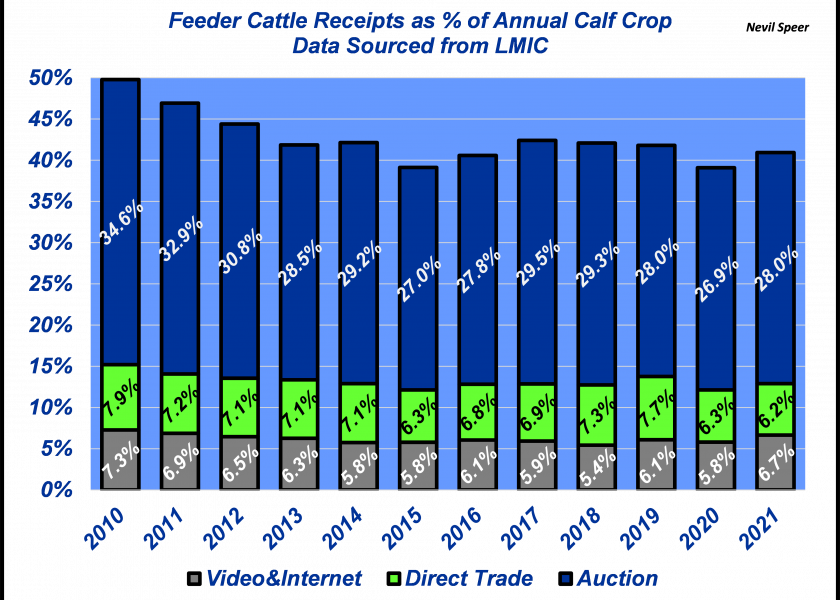Speer: I Do Not Think It Means What You Think It Means

Last week presented a flurry of activity. First, there was a new stab at market legislation. Steve Cornett aptly described it as, “…worse than mere political kabuki,” noting, “[they’re] locking into place the very system they profess to oppose”.
And then R-CALF essentially declared the industry needs to adopt a complete do-over (ironic because such a demand is effectively a call to do nothing).
In both instances, I was reminded of the Princess Bride. Specifically, when Inigo Montoya says to Vizzini, “You keep using that word, I do not think it means what you think it means.” There’s all this energy focused on the “market” – but there’s little emphasis on the “business”.
This column has systematically covered some of that disconnect in recent months:
- First, mandates don’t benefit, they cost producers;
- Second, prices have not been stagnant – they’ve improved in each of the previous two decades;
- Third, more trade does NOT mean better prices;
- Fourth, the feeding sector has largely driven the trend away from the cash market;
- Last, there’s no relationship between cash trade and returns for feedyards or cow/calf operations.
With that in mind, let’s now move to the feeder market. The data outlined below represents annual feeder cattle receipts as a percentage of the total calf crop A couple of key items to highlight:
- Video and internet sale volume is solid.
- Reported direct trade:
- Important to remember, only a portion of that is negotiated – much of it is based on contracts established ahead of delivery;
- All sales are voluntarily reported to USDA.
- Auction market:
- Volume steadily declined as the cowherd liquidated to less than 30M cows and never really recovered;
- The overall percentage is overstated – there’s a portion of calves that get sold multiple times in the auction market system.
- The remainder represents unaccounted trade (most of which are unreported direct sales – that may, or may not, be negotiated).
What’s the take-away? Farmers / ranchers are also opting out of the price discovery process.
Back to last week, the Senate included this rationale in the new legislation: “…it is the sense of the Senate that all participants in the fed cattle market have a responsibility to contribute to sufficient levels of negotiated trade of fed cattle in all cattle feeding regions in order to achieve competitive bidding.” That’s squishy; leaving a lot of room for interpretation around all aspects.
Given the feeder cattle trends outlined above, will legislators someday mandate the same rationale at the ranch? Maybe farmers / ranchers ought to be “responsible” for achieving some “level” of “competitive bidding”, too? And just think, perhaps there might arise new mandates around how you price / purchase your next pickup or tractor or hay purchase or… Where does all this end?
The emphasis on mandates is distracting (at best) – and brings us back to Inigo Montoya – it does not mean what you think it means. Mandates never create prosperity. Rather, the focus needs to remain on the business: that’s where opportunity gets established and enables both producers individually, and the industry collectively, to remain competitive.
Nevil Speer is an independent consultant based in Bowling Green, KY. The views and opinions expressed herein do not reflect, nor are associated with in any manner, any client or business relationship. He can be reached at nevil.speer@turkeytrack.biz.
Related:
Cornett: Umm, Yes. Stochastic Error Terms
R-CALF Says New Studies ‘Validate’ Calls For Market Reform
Cornett: The Mandaters Move On
Senators Revise Cattle Price Discovery and Transparency Act
Potts: Supply, Demand Balance Without Government Intervention
Cornett: A ‘Hard Cull’ On The Facts
Packers and Allies Urge Congress to Do Nothing in Face of Broken Markets
Speer: Policy Makers Should Just Leave Well Enough Alone
Speer: Is Fair What We Really Want?







